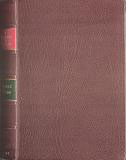LIEUTENANT-COLONEL
WILLIAM JACOB
Born 21st September
1800 - Died 6th June 1854
A
son of John Jacob of Guernsey, he was born on
Sunday 21st September 1800, baptized on 21st October 1800 and died on 6th
June 1854. He married Jane, the only daughter
of Richard Swinton. She was baptized on 16th December 1818 and died on 14th
March 1853. They had children:
As
far as I can tell, William Jacob was the first of the family to serve in the
Indian Army. He had served with Colonel Prother's Field Force during the war
with the Pethwa in 1817-1818. He was severely wounded at the taking of Mocca
in 1820. He received a reward of 3000 Rupees from the Government for constructing
a telegraphic dictionary, whereby Colonel Paisley's invention was successfully
worked. After retiring from service, he accepted a professorship at his old
college at Adiscombe. He wrote a book 'Practical Hints on the Proof of Gunpowder',
which was published in Bombay in 1846.
His
will is dated 18th October 1853, and proved 30th June 1854. In it he lists
his porperty and its value, amounting to a total of £5162. This was
made up largely of stock in the Oriental and Peninsular Steam Navigation Compnany
and West and East India Dock stock. The value of his personal goods, ie plate,
books and furniture was about £800.
He
asks for his personal effects to be sold, with a number of exceptions, the
proceeds to be invested in shares and stock, to be equally shared amongst
his children, and yet £225 to be paid to each out of capital to keep
them in life.
Various
specific book requests made, and there is mention of a family bible. The family
portraits were to go to his eldest son.and to remain in England. A codicil
states that his son Swinton is likely to go for a cadetship, whereas he had
thought he would enter the ministry. Accordingly he wishes his books to be
sold, but some retained at discretion of his executors; he had bequeathed
his religious books before. Edward and Philip, his brothers, were appointed
executors of his will. He desired to be buried by a priest who was not high
church.
Presumably
the family portraits were destroyed when his great grandson Sir Claud Jacob's
house was destroyed in the Blitz during WWII.
I
have a number of press-cuttings relating to him, one of which I copy below:
The following
well-merited compliment has been paid to Major Jacob, by the Commandant of
Artillery, on the occasion of his departure for Europe:
Artillery
Head Quarters, Bombay, 30th December 1844
Regimental Orders by Lieut-Col J G Griffith
The approaching
departure of Major William Jacob to Europe, on the furlough granted to him
by G G O No 702, dated the 11th instant, affords the Commandant of Artillery
a suitable opportunity to record the estimation in which he holds the public
services of that officer.
Major
Jacob's talets and zeal have been conspicuous throughout a long and honourable
course of service, and while they have obtained for him a variety of employments,
such as seldom has been assigned to any one officer, he has in every instance
acquitted imself with credit, and has repeatedly elicited the high commendation
of Government.
Amongst
the numerous examples which offer themselves, the capture of Mocha, in the
Red Sea, in 1820, Major Jacob (then a Lieutenant) place him at once in the
character of a scientific officer, and a gallant soldier. On that occasion,
when it was found impracticable to breach the earthern defences in the ordinary
way, Lieutenant Jacob conceived the idea of effecting the object by means
of loaded shells; the breach was made by this expedient (then a novel one,
though since recognized and practised by the first artillerists) and Lieutenant
Jacob led the storming party to the attack of the place. More recently Major
Jacob's arduous scientific labours in the important duty entrusted to him
as a member of a special commitee on the Aden Fortifications, have ontained
for him the thanks of the Court of Directors. Many other instances equally
creditable to Major Jacob's professional character might be adduced; but the
Commandant considers it most appropriate in an Artillery Order, to notice
Major Jacob's valuable services as superintendent of the powder works; the
steady progressive improvement in the quality of Bombay Powder, under Major
Jacob's superintendence, is known to every officer of experience in the Corps,
its reduced cost and improved system of manufacture are known to the Commandant
and the Department immediately concerned: the merit of these reforms may most
justly be ascribed to that intelligence and determination which has ever characterised
Major Jacob's conduct, alike in public and private affairs.
That
the immediate effect of Major Jacob's journey to Europe may be completely
realized, and that his zeal and ability may soon be again available to his
regiment and to the Government, is the heartfelt wish of the Commandant and
of the corps at large.
W M Coghlan, Capt. Bt-Maj,
Brigade Major Artillery.
.jpg)
